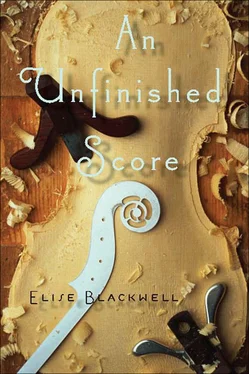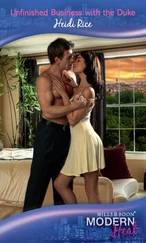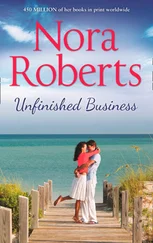Her car is parked to the left, past the garbage collectors, but she turns right to circle the block rather than cross her father’s field of vision and earn a role in one of the myriad small conspiracies against him. Though she strides, neck tall and straight, she feels like a teenager disappearing around the corner to sneak a cigarette. Or an adulterous wife walking an extra block, hoping her lover will call her cell phone like he said he would.
Over her the sky is mostly the same concrete gray as the buckling sidewalk, though sun glows through the connective tissue between cirrus clouds, making their edges glint like metal. She can hear from above the sound of knives scraped against a honing stone and is terrified that she doesn’t know whether the sharp sweeping noises come from an upstairs apartment or from the hot-steely sky itself, an auditory announcement of impending cosmic retribution.
An Asian woman trundles three children wearing summer shirts through the narrow door to a vegetable market. She makes brief eye contact with Suzanne but does not smile. Suzanne quickens her steps, anxious to be sealed into her car, its roof between her and the sky, the vent blowing cool air through the dashboard and the radio pushing out any music at all.
Pop songs from the 1960s crackle from the car speakers as Suzanne zigzags northeast on mostly one-way streets, toward the restaurant where she’ll meet Petra. She touches the hospital literature that Petra left on the passenger seat. The cover page is a medical illustration of aural anatomy. As always, it looks so much like a seashell that Suzanne is tempted to ascribe pattern not just to the universe but to her own life.
On that first day in Charleston, after Ben’s mother and sister finished their stylized interrogation over cucumber-and-cream-cheese sandwiches and too-sweet iced tea, his brother, Charlie, took her to Folly Beach. Ben declined the invitation, choosing to stay behind to read theory for an upcoming exam.
At the beach Charlie taught Suzanne to ride a wave with her body. Over and over she swam out, the saltwater and sunscreen stinging, her eyes nearly closed. Over and over she stretched herself long, catching wave after wave, at once thrilled by and afraid of the water’s lift and slam. Joyously tired, the way the beach would always leave her, she soaked in sunshine, waiting for Charlie to come in from surfing the farthest break line. She felt his shadow over her before she saw or heard him. When she sat up, he placed two shells in her palm.
“It’s funny, isn’t it? The one that looks like an ear makes no sound.”
He held the other one, a large conch, to the side of her head, and she heard the false sea in one ear and the real ocean with the other. They sat together after that, listening to the waves, the squawking gulls.
After a while, he said, “You sure you want to marry into this family?”
“I want to marry Ben.” Suzanne had never said it aloud before, perhaps had not even thought it. But as she said the words, she heard them as truth.
“Hell, he’s so hot, so do I!” Charlie laughed, but then his face settled into something serious, an expression Suzanne couldn’t read. “Does Ben ever talk about our father?”
Suzanne touched Charlie’s forearm, briefly, and shook her head. “Just a very little. A childhood memory or two. And that he drowned during a storm.”
“Out there somewhere.” Charlie stretched his arm toward the blurred horizon, where the pale sky met the darker ocean. “It’s kind of weird, don’t you think, that my mother keeps a picture of the boat on the mantel? There are other pictures of him, where he’s not standing in front of the boat he died on, but that’s the one we all have to look at.”
“I’m sorry” was all Suzanne could think to say, and she held the conch back to her ear as she studied the translucently thin shell in her palm, noting its imperfections, that it was chipped in two places.
She wedges the car into a tight parallel space on South Street and walks the few blocks to the Afghan restaurant where she will meet Petra, the restaurant where Alex asked her about her two most crucial choices in life: instrument and husband.
The establishment is small and made smaller by dark red decor: walls, carpet, chair cushions, tablecloths all versions of the same hue. Lining the foyer are teapots, samovars, rice pots, long-handled spoons, daggers, an antique machete — objects of cooking and objects of war — together with framed reviews as well as articles about how violence in Afghanistan goes on and on. Last time she was here, Suzanne asked Alex if it was wise of the place to associate death with its cuisine. “It’s fine,” he said, “because people want to be told what they already think. If the restaurant displayed pages of Afghan poetry or pictures of Afghan children watching television, people wouldn’t come back. Food and blood aren’t a problem. They’re what people expect.”
It is late for lunch but early for dinner, and Suzanne has the place to herself while she waits. She points to a table near the window, and the old man who seats her and will probably also cook her food leaves her with a menu that she does not study. She plans to order the precise meal she ordered the last time she was here. She cannot remember what Alex ordered, which feels like a crushing loss. If she can’t remember every detail, perhaps it is less painful to remember nothing.
What she does remember is their conversation, nearly perfectly. The place was more than half full that day, mostly with a workday lunch crowd, including someone celebrating a birthday at a table of six. Someone hummed the birthday song and, in a spontaneous coming together, everyone in the restaurant sang. This struck her as funny, and she laughed until she contracted the giggles.
While she stifled her laughter, Alex asked her, cold, “Why did you marry your husband?”
She felt her mirth drain and somberness cross her, shadowlike. She thought about his question — how she might answer it — for what felt like too long.
“There were several reasons,” she told him finally, “including how serious he was about music. Really committed and really talented. I thought we would have this life of music, even that we would be at the center of something, though I guess there hasn’t been anything to be the center of for a long time. Not like eighteenth-century Vienna, nineteenth-century Paris.” She paused before striking a more embarrassing truth. “I also thought he would take care of me. He was confident and from a stable family with some money. Old Charleston. And he seemed like he was going somewhere, that he could make me safe and take care of our children. You know how I grew up.”
Alex nodded, simple understanding.
The other reasons, which were even less tangible, she kept to herself, not so much to protect Alex’s feelings but because she had no words that wouldn’t get them wrong.
Alex sipped tea, then looked into the bottom of his cup. “I married my wife for a similar reason. She was competent and elegant. She knows how to organize the bills and cancel a magazine subscription and make sure the car gets properly serviced and the gutter cleaners are called the month they’re supposed to be called. She knows how to dress for a morning meeting versus a cocktail party. She knows how the world works and how you’re supposed to live in it — the things I didn’t know. When you have a childhood like ours, normalcy is irresistible, no?”
Suzanne nodded. “You want things to work like they’re supposed to.”
“You want the house to be warm in winter and things to start when you turn them on and turkey to be roasting in the oven on holidays.” He turned his eyes but not his head sideways before continuing in a voice carrying traces of the accent that he had all but eradicated but that returned when he talked about his childhood. “When I was a kid, what I wanted maybe as much as anything else was automatic sprinklers like I saw in the middle-class neighborhoods. I thought those people were rich and that they knew how to do things. Our yard was a patch of dirt with a little strip of dead grass. My wife knows how to open up the yellow pages and find a land-scaper. She knows how to program the automatic sprinklers. She buys flowers from the nursery and makes the front of the house look nice all the time. She has made my work possible, by and large, and she knows how to put herself together for a fund-raiser and how to talk to those people I can’t stand, how to ask them for money.”
Читать дальше












